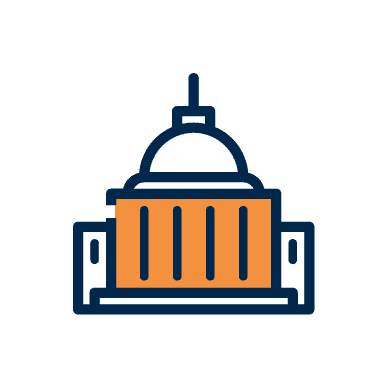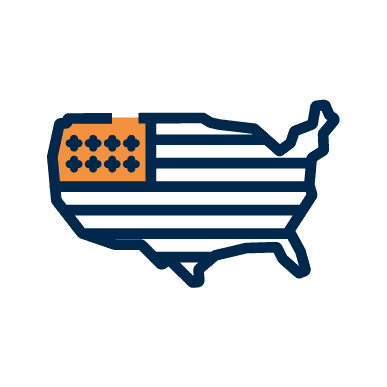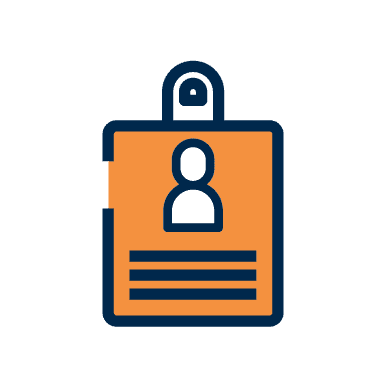Without question, the COVID-19 pandemic profoundly affected the health care industry. In some cases, the effects were fleeting, such as hospital over-crowding and supply chain challenges related to masks, oxygen and ventilators. Some positive changes driven by care gaps during the pandemic may be with us for the long haul –the enhanced use of telehealth and telemedicine comes to mind.
Another change during the pandemic has been the incidence and types of fraud that has been observed by regulators. Creative fraud proliferations because of the relaxation of regulatory requirements to address the very real challenges that the state and federal regulators faced to meet the immediate needs of the American public. Fully understanding and addressing the impact of this unwelcome side effect could be a long process.
“It’s clear fraudsters see the COVID-19 pandemic as a money-making opportunity — creating fraudulent schemes to victimize beneficiaries and steal from federal health care programs,” said Deputy Inspector General for Investigations Gary L. Cantrell of Health and Human Services – Office of Inspector General (HHS-OIG). “Our agency and its law enforcement partners are aggressively and effectively investigating these egregious crimes. We will continue to support the unprecedented COVID-19 public health effort by holding accountable people who use deceptive tactics to profit from the pandemic.”
Information from the OIG and DOJ provides numerous examples of the types of fraud being perpetrated:
- Fake cures for COVID-19 were being sold online
- Phishing emails from entities posing as the World Health Organization or the Centers for Disease Control and Prevention in order to gain access to personal information;
- Malicious websites and apps that appeared to offer COVID-19-related information to gain and lock access to the recipient’s devices until payment was received;
- Seeking donations for bogus or non-existent charitable organizations;
- Providers obtaining patient information for COVID-19 testing and then using that information to fraudulently bill for much more expensive laboratory tests (such as cancer genetic testing, allergy testing, and respiratory pathogen panel tests) which were not medically necessary;
- Providers offered COVID-19 tests to Medicare beneficiaries at senior living facilities, drive-through COVID-19 testing sites, and medical offices to induce the beneficiaries to provide their personal identifying information and a saliva/blood sample;
- Providers billed for sham telemedicine encounters that did not occur;
- Fraudulent sale of substandard masks and gloves marketed as medical grade supplies;
- Professionals are alleged to have offered and paid bribes in exchange for the medical professionals’ referral of medically unnecessary testing;
MFCU Challenges
While these activities were gearing up, MFCUs faced a barrage of new challenges related to the pandemic that threatened to impair the fraud units’ ability to respond quickly. A recent report issued by the OIG in March of 2021 offered insights into the challenges that MFCUs faced in the last year that impacted prosecution efforts.
The work of the MFCUs is a primary driver for many aspects of the OIG’s areas of focus, such as criminal convictions and exclusions, civil settlements and criminal recoveries. Therefore, the effect of the pandemic on the state MFCUs had a direct impact on the key indicators used to assess the effectiveness of the OIG during the last year. In the March 2021 report, the OIG summarized both the challenges and the resulting effect of those challenges in three major categories.
MFCU Operations
Similar to all state and federal agencies during the pandemic, the traditional concept of office work was largely obliterated. Moving to the telework model stressed IT resources, both from a bandwidth and hardware perspective. Field work was curtailed to limit in person contact and virtual meetings became the norm. Where in-person field work continued in nursing homes and other facilities, the lack of personal protective equipment slowed the work. All of these factors slowed the progress of investigations.
Judicial Slowdown
Once an investigation was completed and ready to prosecution, MFCU staff also experienced challenges in the court systems which further delayed case closures. Because courts also curtailed in-person proceedings, this reduced the number of criminal jury trials and the ability of MFCU staff to present their findings in person. Court proceedings also transitioned to video platforms which created challenges for both parties presenting documentary evidence and testimony.
Effect of Pandemic Challenges on MFCU and OIG Outcomes
MFCU-driven Convictions and Resulting OIG Exclusions:
As noted in the OIG’s March 2021 report, total convictions resulting from MFCU cases declined from 1,527 in FY 2019 to 1,017 in FY 2020. In FY 2020, MFCU conviction referrals were responsible for 928 of the OIG’s total number of exclusions. In comparison, for FY 2019, as a result of MFCU conviction referrals, the OIG reported the exclusion of 1,235 individuals and entities from participating in federal health care programs. This represents a 25% decrease in OIG exclusions due to the 2020 challenges faced by the MFCUs.
| 2019 | 2020 | |
| Total Convictions | 1,527 | 1,017 |
| MFCU Convictions | 1,25 | 926 |
MFCU Recoveries
For FY2020, criminal and civil recoveries by MFCUs were down significantly. MFCU criminal recoveries declined from $305 million in FY 2019 to $173 million in FY 2020 which was a drop by 43%. In FY 2020, civil recoveries decreased by 48 percent, from $1.6 billion in FY 2019 to $855 million.
| 2019 | 2020 | |
| Criminal Recoveries | $305 Million | $173 Million |
| Civil Recoveries | $1.6 Billion | $855 Million |
Civil Judgments & Settlements
In contrast to the convictions and recoveries for FY 2020, MFCUs reported an increase in civil settlements/ judgments from FY 2019. The total number of civil settlements and judgments increased from 658 in FY 2019 to 786 in FY 2020 which represents close to a 20% increase. For both years, civil settlements/ judgments involving pharmaceutical manufacturers and pharmacies accounted for a significant percentage (+/- 40%) of all settlements/ judgments.
| 2019 | 2020 | |
| Civil Settlements & Judgements | 658 | 786 |
Federal Enforcement Against COVID-19 Related Fraud
While the types of fraudulent activity are in large part defined, the scope and extent will be defined by the enforcement, investigative and audit work of the DOJ, and the HHS-OIG. Below is an overview of federal strategies and actions taken to investigate and address COVID-19 related fraud.
DOJ
US Attorney General: US Attorney General Merrick Garland issued a memo on May 17, 2021 announcing the establishment of the COVID-19 Fraud Enforcement Task Force to marshal the resources of the Department of Justice in partnership with other state and federal agencies to enhance enforcement against COVID-19 related fraud. The Task Force will incorporate the coordination and communication mechanisms already in place and will bolster ongoing efforts to investigate and prosecute those who have perpetrated fraud related to COVID-19. The DOJ is taking decisive action to prosecute those who took advantage of the public and of federal and state programs, as shown by the May 26 announcement by the DOJ of the criminal indictment of 14 individuals for pandemic-related fraud.
The message from the DOJ is clear:
“To anyone thinking of using the global pandemic as an opportunity to scam and steal from hardworking Americans, my advice is simple – don’t,” said Acting Assistant Attorney General Nicholas L. McQuaid of the Justice Department’s Criminal Division. “No matter where you are or who you are, we will find you and prosecute you to the fullest extent of the law.”
HHS-OIG
As early as May of 2020, the HHS-OIG had already issued a Strategic Plan on oversight of COVID-19 response and recovery. Since then, the OIG has issued 10 audit reports as part of its oversight efforts. The OIG has announced 17 enforcement actions involving arrests and indictments taken on pandemic-related fraud since March 2020. The current OIG work plan reflects the ongoing commitment of resources being made to address pandemic related fraud. As noted by the IG Christie Grimm on June 29, 2021, since the beginning of the pandemic, the OIG hotline has received more than 2,400 complaints of purported fraud. There are multiple active work plan items on the OIG Work Plan that relate to COVID-19.
Conclusion
As agencies and the courts resume normal operations the pandemic-related delays and challenges should abate. However, the effect of pandemic-driven fraud on federal and state agencies’ workloads will likely not revert to the pre-pandemic levels quite as quickly. Collaboration between state and federal enforcement and investigation agencies has been occurring for years; however, COVID-19 related fraud has necessitated truly unprecedented partnership among these entities. The clear intention of the DOJ to increase collaboration to address the glut of fraud spawned by the pandemic may be the best strategy to streamline and expedite the investigation, enforcement and prosecution efforts related to COVID-19 that are faced at the federal and state levels.



































